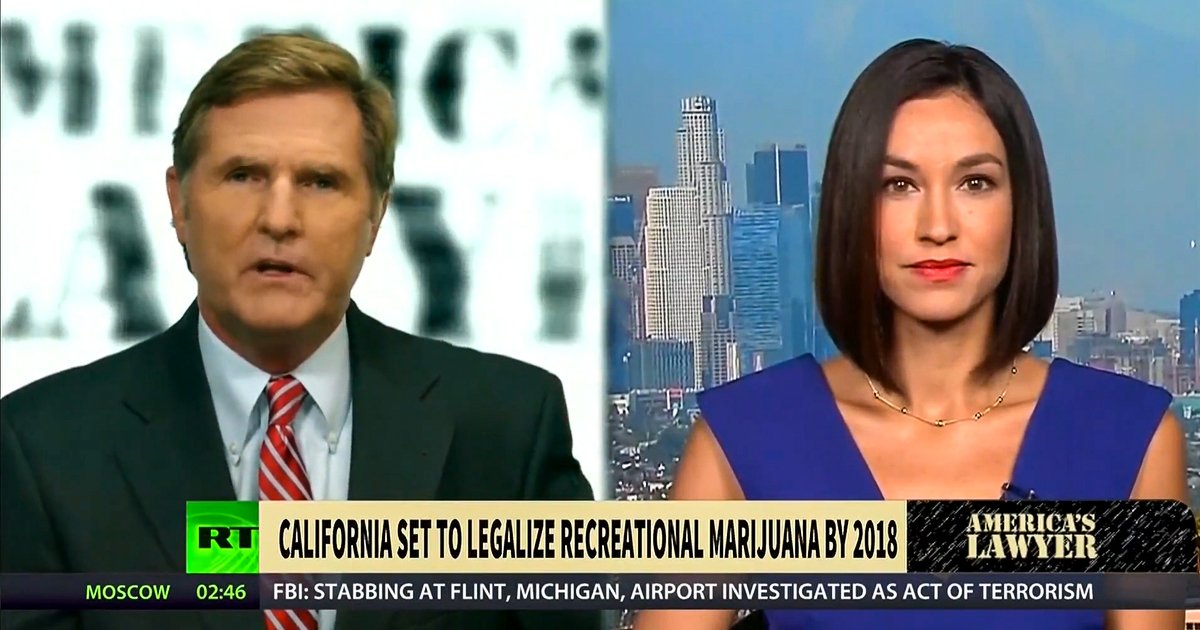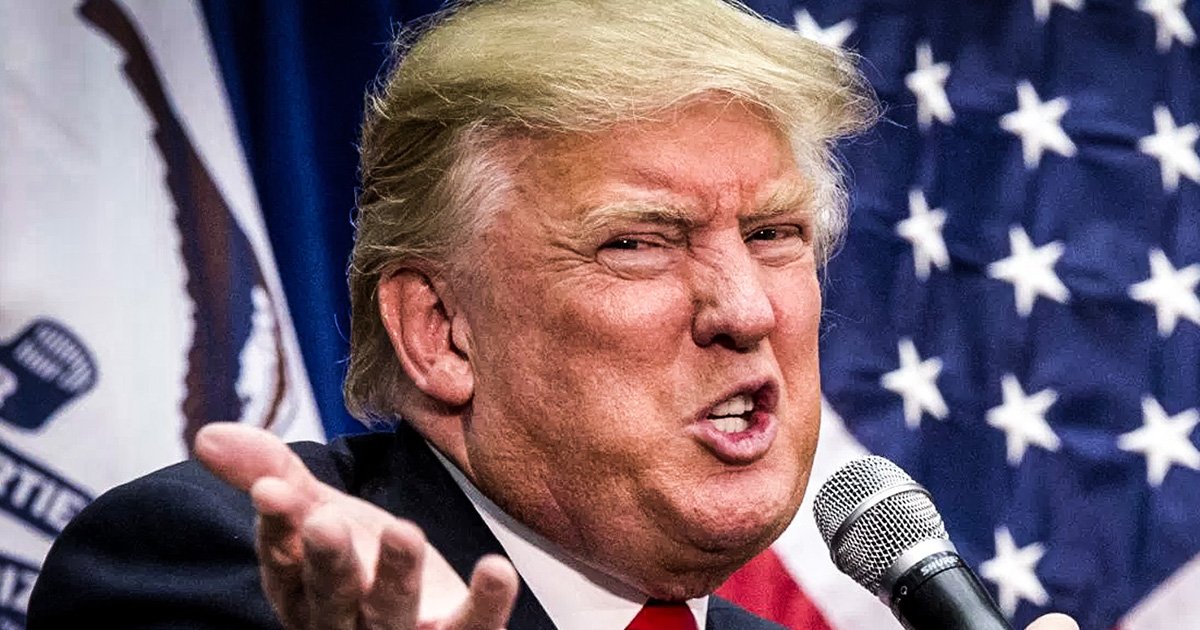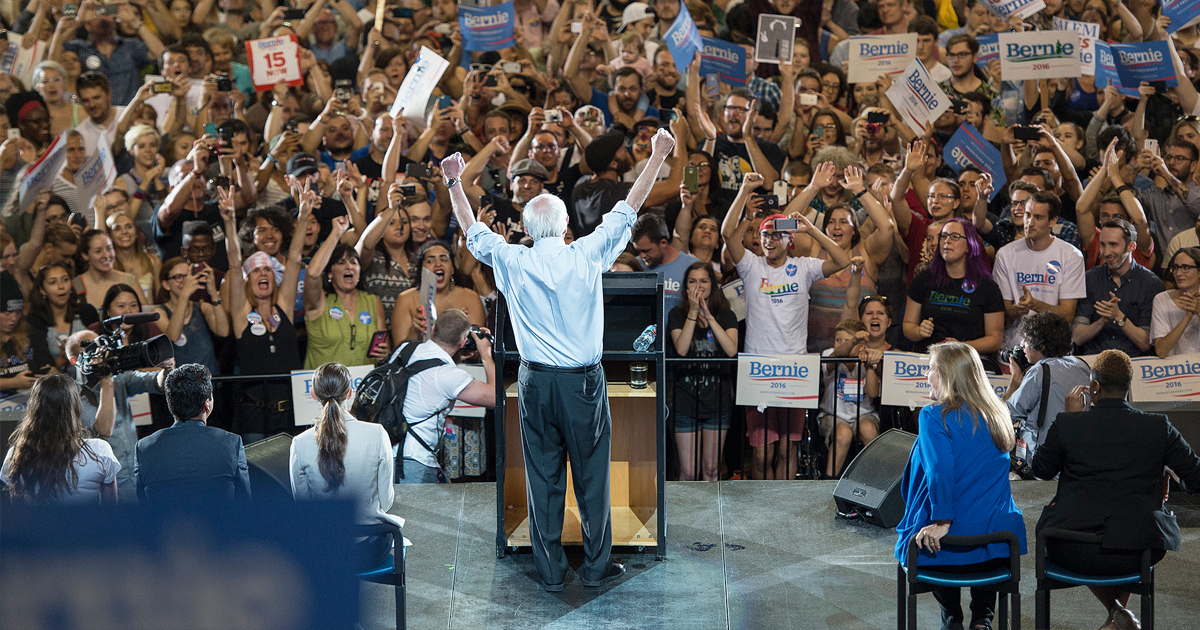To learn more about this topic, visit AL.Law
Via America’s Lawyer: Mike Papantonio talks to RT America correspondent, Brigida Santos about the legal obstacles facing California’s new recreational marijuana program.
Transcript of the above video:
Mike Papantonio: In 2018, Californians is going to be able to legally purchase recreational marijuana. State regulators are now finalizing distribution laws and taking a multi-billion dollar industry from the black market to storefronts. But, with the federal government’s views towards marijuana hanging in the balance, it’s unclear how the Trump administration will treat legalization efforts in California. RT America correspondent Brigida Santos is going to talk to me now about Los Angeles with the details about what’s going on out there. What’s your take on what’s happening out there with this law?
Brigida Santos: A couple of things. We’ve got a long laundry list here. I’ll start from the top, Mike. What’s happening in California is Governor Jerry Brown is really trying to streamline the regulation system, so they’re going to be combining the medical laws which have been standing in place since about 1996 with the new recreational laws. Now, according to the bill, which I have here, Proposition 64 allows adults aged 21 and up to possess and use marijuana for recreational purposes. The measure creates two new taxes, one levied on cultivation and the other on retail price. Prop 64 will allocate tax revenue for drug research, treatment, enforcement, health and safety, youth programs as well as preventing environmental damage from illegal marijuana production. These laws are really aimed at protecting consumers, public safety and making sure that the government gets its fair share here, its cut.
Now, the industry, the legal marijuana industry I should say, generates about $7 billion per year in sales. California estimates that it will generate about $1 billion per year in sales. That right there is a ton of money.
Now, under this law, consumers will be able to possess up to one ounce of marijuana for recreational purposes as well as grow up to six plants in their homes. In addition to that, people who have a doctor’s note for medical use, they will be allowed to skip those sales taxes. Many other laws here are still being drafted and they’re expected to have a final draft by October.
Mike Papantonio: Marijuana is still illegal. You’ve got a problem where you’ve got a federal government that simply we don’t know what they’re going to do. Everyday you’ve got Jeff Sessions coming out saying, ‘We’re going to throw them all in prison.’ You can’t do anything with the banks because they’re so many obstacles there. Look, this is happening in California. It’s happening in Florida. It’s happening all over this country where there’s a sea change taking place. What are your takes on what the federal government has got to do to make all this happen? How are they going to address these issues?
Brigida Santos: First of all, California is trying to position itself to be a sanctuary state for marijuana. In fact, the State Assembly recently passed a law prohibiting local and state law enforcement from helping federal law enforcers on marijuana related inquiries but, yes, it is still illegal on the federal level. In fact marijuana, as I’m sure you know is under a schedule one classification alongside heroin. Federal banks are not allowed to do business with marijuana industry businesses. They cannot accept cash from them and they cannot conduct credit card transactions, the businesses. State banks here in California could potentially start springing up but the problem with that is state banks still need permission from the Federal Reserve. California is discussing right now the option of creating private banks that will be independent from the Federal Reserve. What I really imagine will happen here in California as well as in the other states where marijuana has been legalized is that it will start using payments, cryptocurrencies like Bitcoin to conduct business, not only to carry out transactions, but also to pay their employees in order to keep it away from cash so much, Mike.
Mike Papantonio: Brigida, don’t you find it interesting that you’ve got Jeff Sessions talking … Really, he’s just so out of sync with what’s happening in this country. Now, they’re not talking about corporations that are flooding us with opioids where you have people dying from opioid almost everyday, overdoses everyday, where opioids are actually killing people and you have Jeff Sessions focusing on marijuana. What is your take on this difference? Why is it that a pharmaceutical company that’s making gazillion dollars by killing people with opioids, why is it that we’re giving them a free pass but nevertheless a marijuana grower, somebody is growing marijuana for medical use that they’re now could potentially be the target of the federal government? What is your take on that generally?
Brigida Santos: In general, we know that lobbyists and big pharma money tends to keep the laws in their favor rather than promoting something like marijuana which grows naturally. Of course we have that coming into play here, but California has had a legal medical marijuana industry going for a very long time and I don’t see it stifling innovation. I don’t see it stifling anybody’s will to carry out their legal marijuana businesses despite these federal rules and opposition.
Mike Papantonio: What have California lawmakers said about what they’re trying to learn? There’s a lot of water under the bridge. States like Colorado, Washington, they were the first to pioneer recreational marijuana programs. What’s the takeaway that California should look at or maybe Florida should look at as they go forward with these types of programs?
Brigida Santos: California Governor Jerry Brown has gotten some advice from the Colorado Governor John Hickenlooper, and that’s things that he’s learned through the legalization of recreational marijuana in Colorado, things specifically like regulating edibles. That’s something that they had to learn the hard way after they had some negative incidents taking place there. They’re also talking about coming up with a good tax level just to make sure that legal marijuana is not flooded into the dark market.
Mike Papantonio: Well, let’s hope as this goes forward … Again, I can’t help but come back to this because you have an opioid crisis taking place all over America and you have companies that, Purdue, for example, that understood they were making billions of dollars as people were overdosing on their toxic product everyday. I find it incredible that here you’ve got a justice department … They aren’t throwing these cats in jail but they’re trying to throw people who are operating within the bounds of the law absolutely like they’re supposed to. They’re trying to find a way to make them into the criminal as these white-collared thugs walk the streets and sell us opioids by the ton killing people by the hundreds and thousands. Thank you for joining me. Okay.





